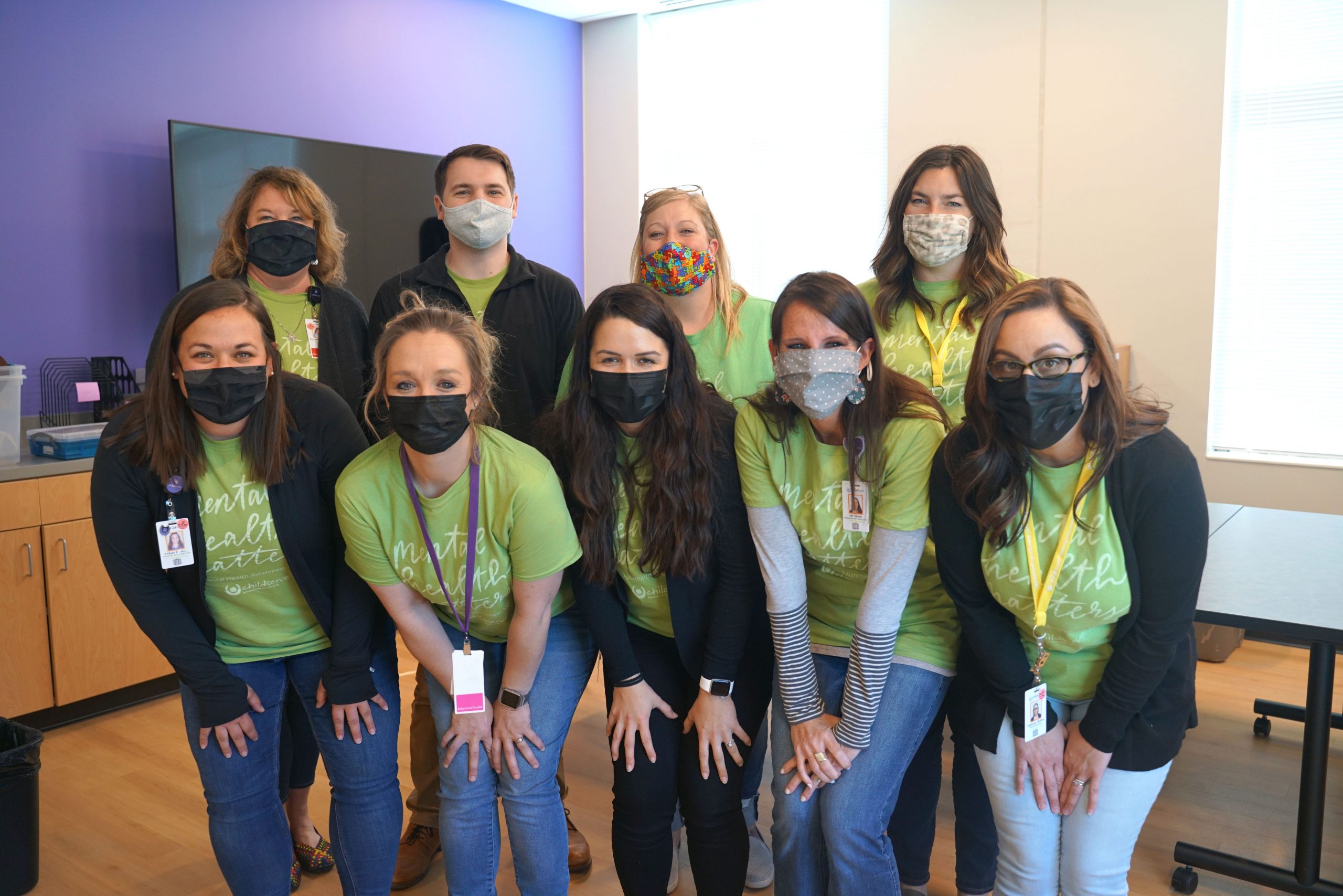
Conversations about mental health can be really hard to start, but the stakes are too high not to try. ChildServe invites the families we serve to check in with their children, family and friends today.
Start with a Conversation
The best way to care for each other’s mental health is to have open, ongoing conversations about our feelings. The last year and a half has been hard for all of us. With school back in session, many kids face anxiety, bullying, the stress of homework and more. It can be so easy for kids and teens to bottle up all of their stress and become more and more overwhelmed. Take time to remind your child that you are there for them, and that it’s good to talk about feelings – both good and bad.
How to Watch for Warning Signs
Parents of children with disabilities sometimes face an extra challenge in discovering their child’s true feelings. Whether or not your child is able to communicate their feelings with you, the following questions can help you identify when your child may be in need of extra mental health support.
- Has your child experienced a sudden, unexplained, negative change in behavior?
- Are your child’s worries or hyperactive impulses significantly out of proportion to others of the same developmental age and gender?
- Are there unexplained changes in appetite, weight, sleep or other physical symptoms?
- Does your child experience intense emotions that disrupt regular functioning?
- Has your child experienced an event that they considered to be traumatic?
Ultimately, if you are unsure about these questions, consulting with a mental health professional is the best option. It’s the same as getting help from a family medical provider when your child has a physical health concern.
Check Out These Resources
The resources below offer many resources that can help you further prepare for a conversation on the topics of mental health, suicide and self-harm. Click the following links to learn more about these topics:
- Mental Health Support in Iowa – Learn about NAMI
- Know the signs and risk factors of suicide
- Save and share these emergency and crisis resources
- If you or someone you know is in an emergency, call 911 immediately.
- If you are in crisis or are experiencing difficult or suicidal thoughts, call the National Suicide Hotline at 1-800-273 TALK (8255)
- If you’re uncomfortable talking on the phone, you can also text NAMI to 741-741 to be connected to a free, trained crisis counselor on the Crisis Text Line.
About
ChildServe improves the health and well-being of nearly 5,800 children each year through specialized clinical, home, and community-based programs and services. We serve children with developmental delays, disabilities, injuries, and other special healthcare needs.
Follow Us
Contact Us
Johnston | 515-727-8750
Ames | 515-232-7220
Des Moines | 515-280-5332
Iowa City | 319-351-5437
Cedar Rapids | 319-777-7450
Links
